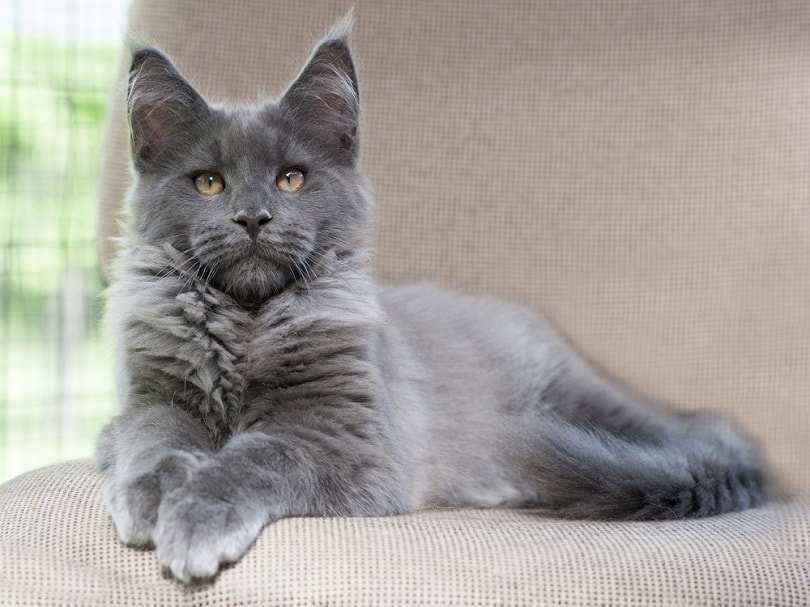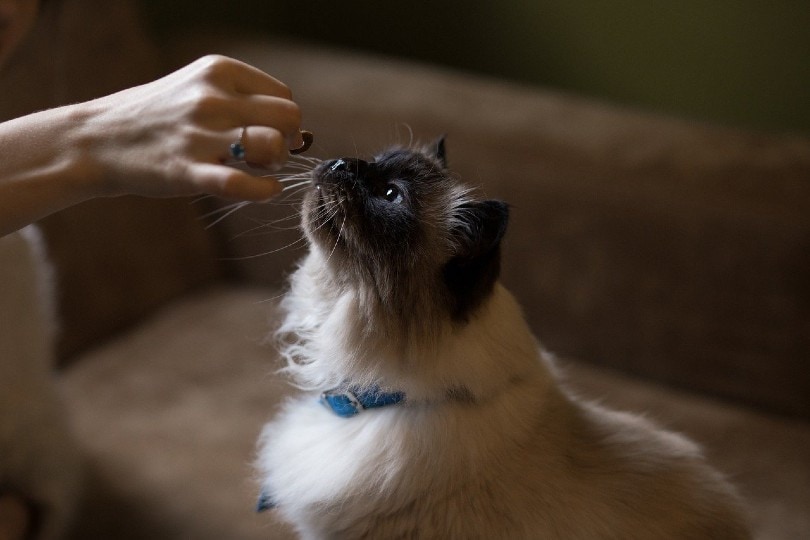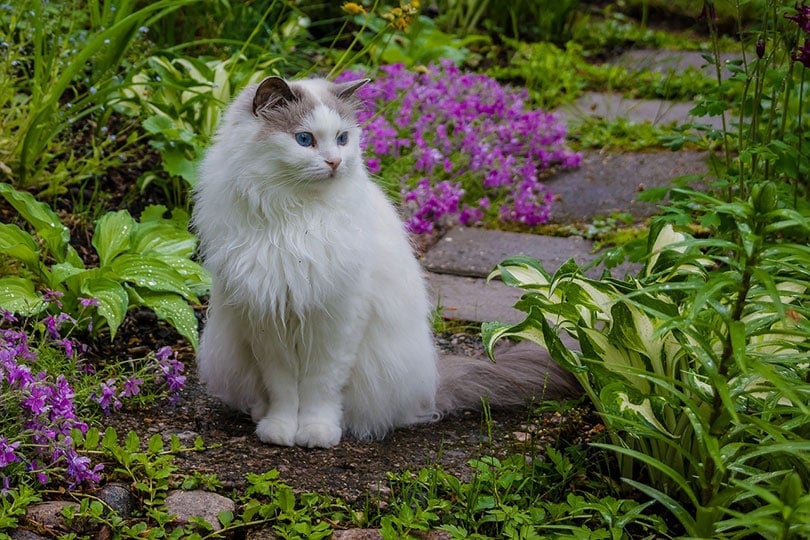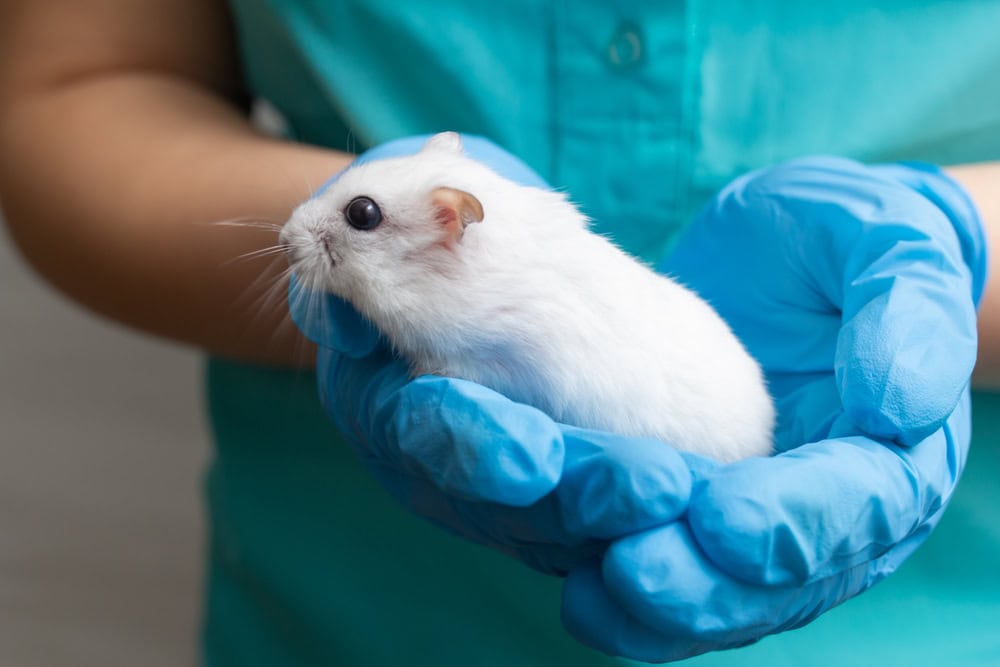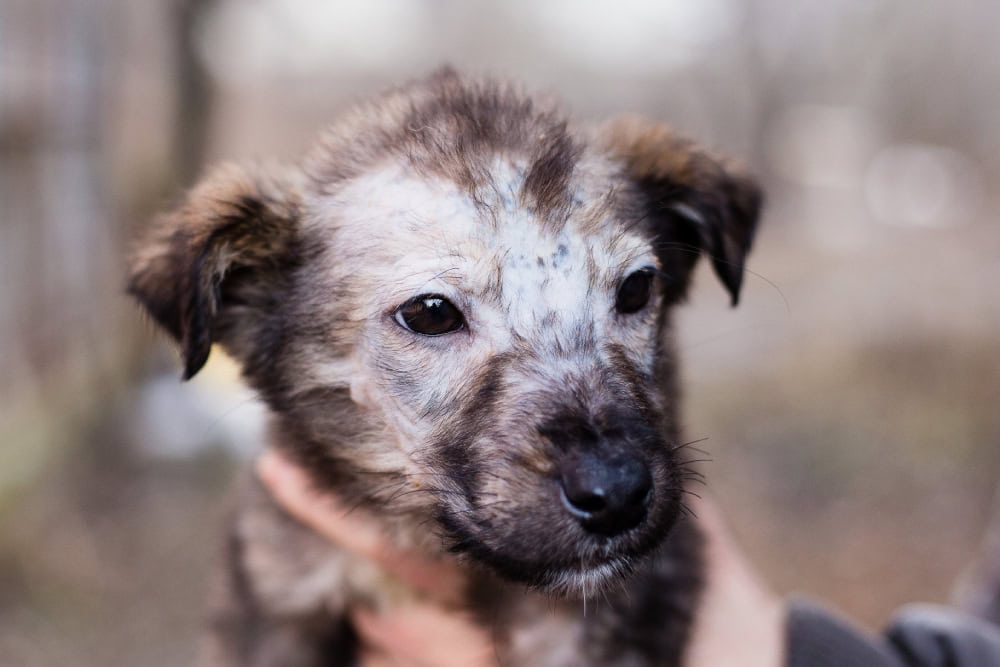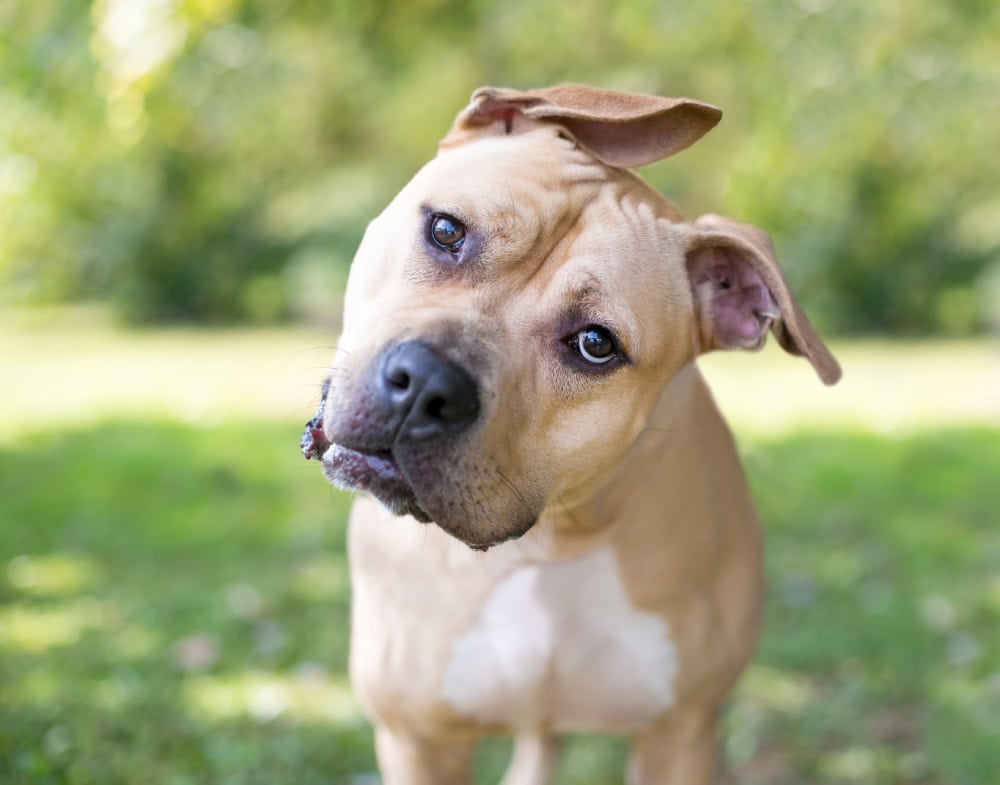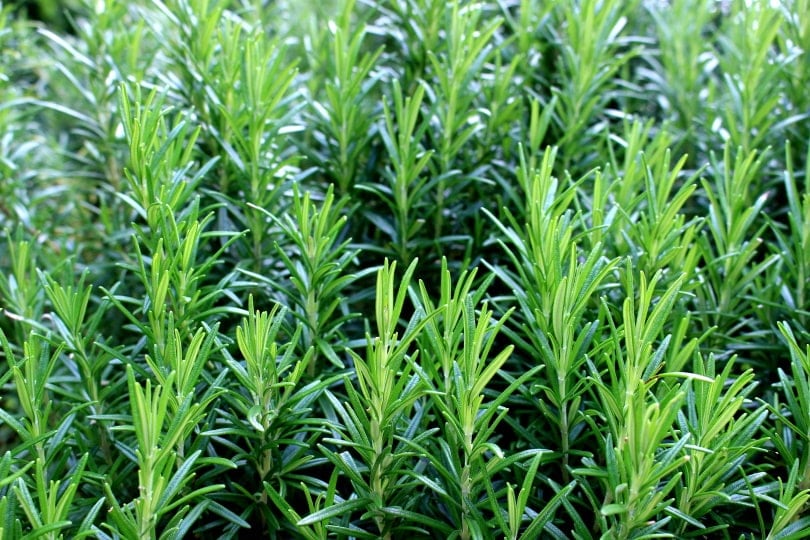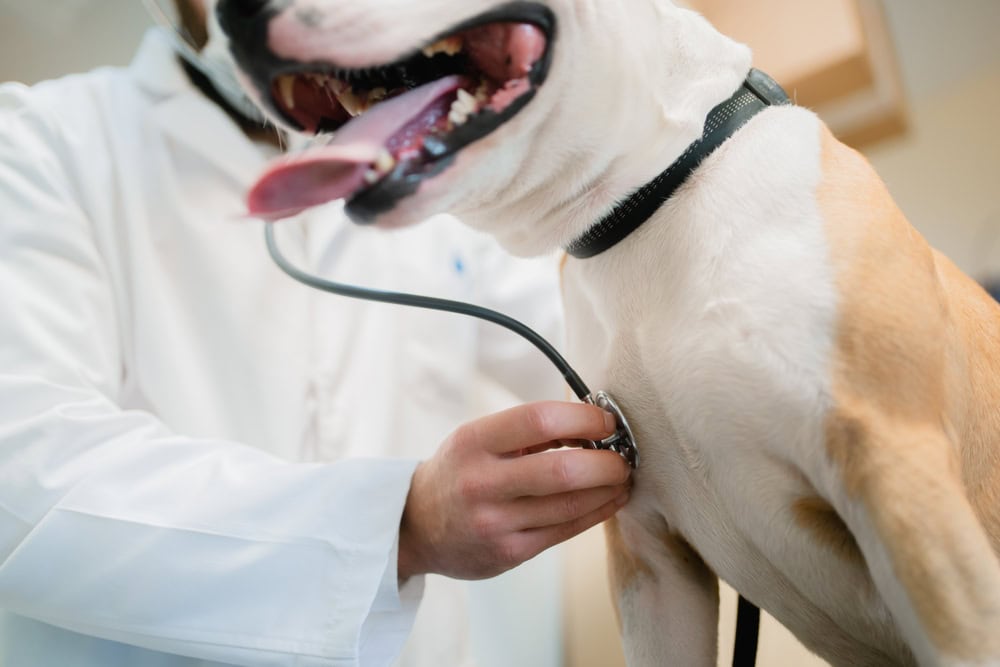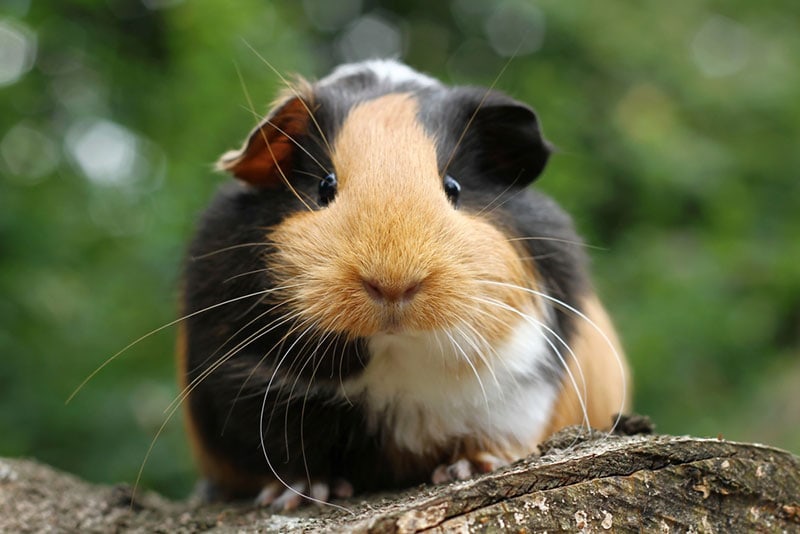
Guinea pigs are incredible pets. They’re adorable, take up a little space, and produce a myriad of fascinating sounds which we’ve come to love. They’re also well known for their charming antics, such as playfully hopping about (known as “popcorning”).
Much of these desired behaviors are expressed by guinea pigs when they’re content in their environment and comfortable with you. This may take some time and not be immediately apparent when you initially adopt your pets. This explains why many first time owners are keen to figure out exactly what it is they need to do to make sure their guinea pigs are happy.
Fortunately, with just a bit of effort, you can keep your guinea pig happy and, by proxy, healthy. Read on to find out how.

The 8 Tips to Make Guinea Pigs Happy
In a strict sense, guinea pigs do not necessarily feel the entire spectrum of happiness in the same emotional way that humans do. However, they are definitely very expressive, and it’s relatively easy to tell when your pets are content, comfortable, and stress-free. In turn, these behaviors are associated with happiness.
The following tips will help you achieve all this, and offer health benefits to your pet too!
1. Feed Them a Balanced Nutritious Diet
The quickest way to your guinea pig’s heart is through their stomach. Feeding them a balanced diet keeps them healthy. In turn, a healthy animal is more likely to be content, comfortable, and in essence, happy.
[su_box title=”The Basics Of a Guinea Pig’s Diet:” box_color=”#98BFB4″ radius=”0″][su_list icon=”icon: paw” icon_color=”#98BFB4″]
- Fresh, clean drinking water should be available at all times.
- High quality hay (such as timothy hay) should be available at all times, and forms the overwhelming majority (70-80%) of a guinea pig’s diet.
- Guinea pigs should be offered safe-to-eat vegetables and fruits on a daily basis. Foods high in vitamin C should be favored for this purpose.
- Guinea pig pellets can be offered in small amounts (around 10% of their daily intake); ensure the pellet you offer your pets has fortification with vitamin C.
[/su_list][/su_box]
Guinea pigs are neophobic (fearful of new experiences) and may not accept food items that they were not introduced to at a young age. It’s important to discuss your pet’s diet with your veterinarian when they’re still young, to ensure that you can incorporate the necessary foods in their diet from a young age.

2. Get Them Some Company
Contrary to popular thought, guinea pigs are social creatures that enjoy spending time with their owners and other guinea pigs. Adopting another guinea pig is an excellent way to keep your current one stress-free.
Some countries have laws which prohibit the adoption of guinea pigs as individuals. These laws require the adoption of at least 2 individual guinea pigs at all times (as a minimum). This stresses the importance of socialization for these animals.
Guinea pigs have a patriarchal social structure. Males will jockey for dominance and establish a hierarchy. The same goes for females. Only the dominant females will mate with the dominant males in such a group.
The best way to house guinea pigs is to opt for same-sex groups of individuals that are either already accustomed to each other or introduced at a young age. Introductions at older ages are definitely possible though, but may need additional steps and precautions.
3. Keep Their Cage Clean and Cozy
A clean, comfortable, and conducive living space is imperative to your rodent’s happiness. Remember, the cage is where your furry friend eats, sleeps, plays, and goes to the bathroom. And it’s your job to keep their home as comfortable as possible.
C&C cages (Cubes and Coroplast cages) are popular for guinea pigs due to their high levels of customization possibilities. A rabbit hutch can be used for guinea pigs, and often are a good option in terms of value for money.
[su_box title=”Tips for Setting Up Your Pet’s Cage or Enclosure” box_color=”#98BFB4″ radius=”0″][su_list icon=”icon: paw” icon_color=”#98BFB4″]
- Create a cozy sleeping area with bath mats or fleece liners
- Place a water bowl or dispenser in the cage (multiple if necessary)
- Have one food bowl for dry pellets and another one for vegetables
- Install appropriate structures for playing
- Provide toys and entertainment items
[/su_list][/su_box]
Doing the above will create a lovely setup for your piggies, but this is just part of the equation. You also have to clean the cage at least weekly to keep it in pristine condition. What’s more, guinea pig litter needs to be cleaned frequently. Cleaning the cage weekly should be considered a minimum, crowded cages may need to be cleaned more frequently.
Lining the cage with a fleece liner is also a good idea since it absorbs all the urine and is easier to clean. Though this does involve a lot of laundry, it’s often the best long-term solution for most guinea pig owners.
Finally, ensure the cage is kept in a dry, silent place to give the piggies some peace and quiet.

4. Spend Time With the Fluff Balls
Spend time interacting with and talking to your guinea pigs to strengthen your bond. For many first time owners, it sounds strange to talk to an animal. Veterans and veterinarians alike will not agree, and tell you that’s perfectly normal!
It’s normal for your piggy to be shy and reclusive for the first few days or weeks after adoption. You can try luring them in with a gentle voice when feeding them, and they’ll eventually get used to you. Before you know it, you’ll be the best of friends. Many guinea pigs come alive and begin vocalizing when they see their owners going to the fridge because they quickly learn that it’s where their salads come from!
5. Have Fun Outside (Optional)
If you have a secure yard and are able to accommodate an outdoor hutch, allowing your guinea pigs to spend some time outside might be a good idea for some enrichment.
Guinea pigs might run away if let loose, and may not come back because their prey instinct might cause them to impulsively find cover and hide. Consider creating a spacious enclosure outside, if possible. Ensure that it is escape-proof and predator-proof. Alternatively, portable hutches can be ferried outdoors and then back indoors.
You shouldn’t take your guinea pig outside when the weather is too cold, too warm, during events such as thunderstorms, rain, hail, snow, and other natural disasters. A guinea pig’s preferred ambient temperature is between 60–85°F (15.6–29.4°C). Many Celsius recommendations are rounded to 16–29°C for convenience.

6. Give Them Physical and Mental Challenges
Like all pets, guinea pigs need both mental and physical stimulation to keep them happy and healthy. Keeping your guinea pig mentally and physically stimulated is rewarding. In most instances, physically stimulating your pet to explore and play will also stimulate them mentally.
[su_box title=”Tips for Enrichment” box_color=”#98BFB4″ radius=”0″][su_list icon=”icon: paw” icon_color=”#98BFB4″]
- Hide fruit and vegetable pieces in the cage for them to forage
- Hay racks, cardboard boxes, and puzzle toys are great for a rewarding game
- Incorporate safe chews for your pets in the form of toys
- Untreated wicker baskets are an all-time favorite for guinea pigs
[/su_list][/su_box]
7. Consider a Spa Day
Consider giving your guinea pig a spa day to bond with your pet and improve their health. Of course, it won’t involve a full facial makeover, pedicure, waxing, and microdermabrasion, but it’ll achieve the desired result.
[su_box title=”Guinea Pig Spa Day Ideas” box_color=”#98BFB4″ radius=”0″][su_list icon=”icon: paw” icon_color=”#98BFB4″]
- Brushing with a soft brush to ensure a smooth coat and detangle (very important for long-haired guinea pigs)
- Gently pet them if they appreciate cuddling
- Check their claws and make a note if they need to be trimmed
- Check their ears, eyes, and nose for any discharge (in healthy guinea pigs, these should be discharge-free).
[/su_list][/su_box]
Generally speaking, healthy guinea pigs groom themselves and don’t need baths. If your pet is particularly smelly, it might be due to an underlying health issue. This warrants veterinary care.

8. Regular Vet Check-Ups
Sometimes, the reason for your guinea pigs’ inactivity and lack of “happiness” may be an underlying illness. Unfortunately, guinea pigs do try to mask their illnesses whenever possible. This is a common instinctive behavior among many animals, especially prey animals (which guinea pigs are). Many guinea pig illnesses aren’t too apparent, and you might mistake signs of sickness for laziness or fatigue.
Schedule regular visits to the vet to ensure your guinea pig’s health is in tip-top shape. Ideally, you should have your guinea pig looked over by a veterinarian shortly before adoption, if possible. If this isn’t possible, have them examined by your veterinarian shortly after adoption. Most healthy pets need at least one annual visit. Pets that are unwell or those that have underlying diagnosed ailments may require more frequent visits to your veterinarian. The frequency of these visits is often at your veterinarian’s discretion.

Conclusion
Keeping your guinea pig happy isn’t rocket science but does require some effort and commitment. Fortunately, many of the ways to keep your pet happy are relatively easy to execute once you get the hang of it!
In addition, don’t forget to look out for signs such as fidgeting, lack of appetite, and weight loss. These could indicate disease, which, if not addressed, could snowball into other complicated health issues.
See Also:
- How Long Can Guinea Pigs Go Without Food or Water? Vet-Reviewed Facts
- Do Guinea Pigs Go Into Heat? Vet-Reviewed Reproductive Facts & FAQ
[su_accordion class=””] [su_spoiler title=”Sources” open=”no” style=”default” icon=”plus” anchor=”” anchor_in_url=”no” class=””]
[/su_spoiler] [/su_accordion]
Featured Image Credit: Miroslav Hlavko, Shutterstock








